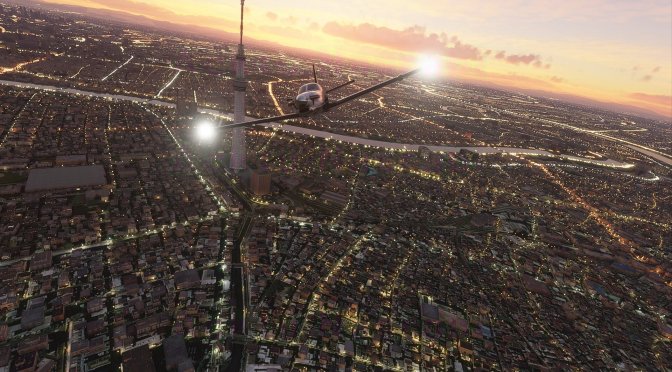Microsoft and Asobo have released a new performance patch for Microsoft Flight Simulator. According to the teams, patch 1.8.3.0 brings a number of CPU and GPU performance improvements.
Going into more details, this latest update tweaks CPU thread priorities to reduce interruption of frame critical threads. Furthermore, it optimizes loading system to reduce overall loading times, as well as heavy airport scenes impact on CPU. In addition, it reduces the amount of GPU overdraw to improve GPU performance.
What this basically means is that the game will be less taxing on most PC configurations. So yeah, while these CPU improvements are not up to what we expect to see when Asobo adds support for DX12, they are definitely welcome.
As always, Steam and Microsoft Store will download this update the next time you launch their clients. Below you can also find its performance improvements (you can find the complete changelog here).
Microsoft Flight Simulator Patch 1.8.3.0 Release Notes
Performance Improvements
- Optimised cockpit screen display when screens are not displayed on screen.
- New option available to control cockpit screen update frequency.
- Tweaked CPU thread priorities to reduce interruption of frame critical threads.
- Optimised loading system to reduce overall loading times.
- Optimised heavy airport scenes impact on CPU.
- Reduced the amount of GPU overdraw to improve GPU performance.
- Memory optimisations to reduce software memory footprint and improve performance on limited memory computers.
- Overall performance optimisations.

John is the founder and Editor in Chief at DSOGaming. He is a PC gaming fan and highly supports the modding and indie communities. Before creating DSOGaming, John worked on numerous gaming websites. While he is a die-hard PC gamer, his gaming roots can be found on consoles. John loved – and still does – the 16-bit consoles, and considers SNES to be one of the best consoles. Still, the PC platform won him over consoles. That was mainly due to 3DFX and its iconic dedicated 3D accelerator graphics card, Voodoo 2. John has also written a higher degree thesis on the “The Evolution of PC graphics cards.”
Contact: Email

